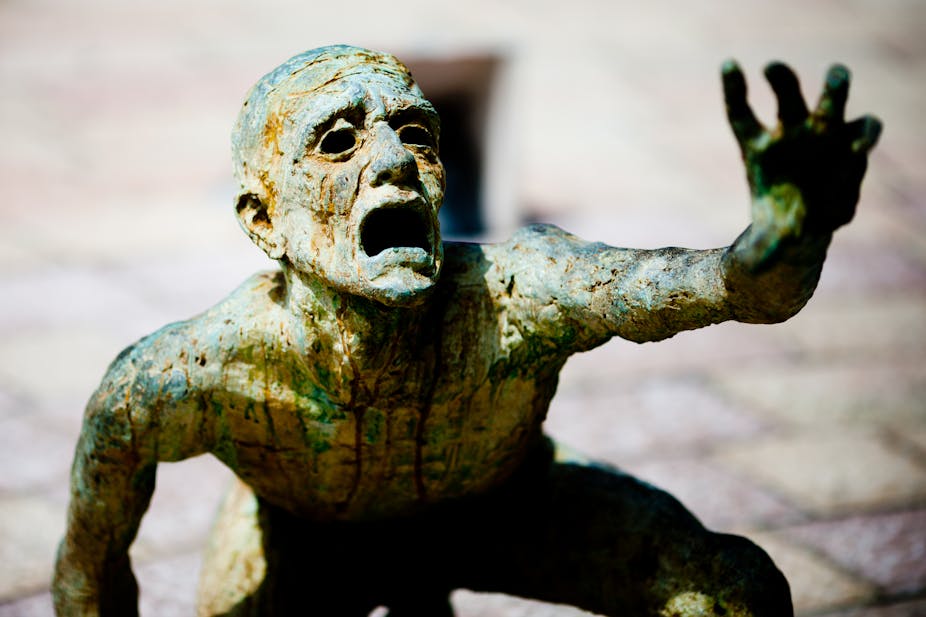Euthanasia advocates often assert a distinction between dying with dignity (good) and suicide (bad), drawing on the community’s twin commitment to both permitting euthanasia in some circumstances, and preventing suicide. But rather than being distinct, euthanasia and suicide are points on a continuum of death decisions, that overlap uncomfortably where intractable mental suffering is asserted as grounds for assisted dying.
The tension between the two was played out this week in the Northern Territory, where the local Civil and Administrative Tribunal is considering whether to uphold the Medical Board of Australia’s suspension of Philip Nitschke’s medical licence after a three-day hearing.
The suspension came after Nitschke discussed assisted suicide with 45-year-old Perth man Nigel Brayley even though he knew Brayley did not have a terminal illness. Brayley reportedly told Nitschke in an email that he was “suffering” in the sense that he was deeply unhappy in his life. Nitschke did not refer to him to a psychiatrist or offer any other help.
More complex than it appears
Nitschke’s actions have been roundly criticised, particularly by other euthanasia advocates, who seek to distance themselves from existential justifications for assisted suicide. However the idea that euthanasia should not be offered for mental suffering is not universally agreed, and requires some further consideration.
In the Netherlands and Belgium where euthanasia is legal, assisted dying for emotional suffering is permitted. Approval will only be granted where where applicants are of age, mentally competent and their suffering constitutes an “incurable condition” that causes continuous and unbearable anguish.
Of the 1,432 recorded cases of euthanasia in Belgium in 2012, 52 were on psychological grounds. In the Netherlands, the figure was 42 out of a total of 4,829 cases in 2013.
Still, the idea – and practice – remains deeply controversial. Concern often focuses on a lack of confidence in the notion that mental illness or emotional pain should ever be regarded as “incurable”. A troubling question then arsies as to whether we might be too carelessly priviliging the right to autonomy, and undermining our responsibility to protect vulnerable people from harm.

Others have suggested that if we extend the right to die beyond those who are actually already dying, we risk setting off down a “very dangerous path and one that’s extremely slippery”. This worry seems to be that we slide into a situation in which marginalised and vulnerable people’s right to life will not be sufficiently protected.
A fine line
But too stringent an approach risks locking people with mental illnesses out of the right to make decisions about the end of their lives – and this might be discriminatory.
In a troubling 2012 UK case, for instance, a hospital was ordered to cease a palliative care program consented to by a 32-year-old woman with anorexia nervosa and to forcibly re-feed her despite her deep distress at the prospect. The woman had consistently refused re-feeding over the past several years, experiencing it as a violent assault.
The court decided the fact that she had an eating disorder made her incompetent to make a legally enforceable decision to refuse treatment. The implication of the decision was that, by definition, people with anorexia cannot make an end-of-life decision, no matter how harrowing and intractable their illness becomes.
It was a conclusion that bitterly disappointed the woman’s parents, who said:
It seems strange to us that the only people who don’t seem to have the right to die when there is no further appropriate treatment available are those with an eating disorder.
Nitschke may well have made errors in his assessment of Brayley. These will be considered by the tribunal. But he had a reasonable point when he said that he had suffered a “political deregistration” because “a government board … doesn’t agree with the beliefs of its citizens”. Certainly there are a range of defensible views on what is a good life and when assisted dying is acceptable. In any case, the fact remains that assisted dying for mental suffering is a long way from achieving broad acceptance in Australia.
If you have depression or feel very low, please seek support immediately. For support in a crisis, contact Lifeline on 13 11 14. For information about depression and suicide prevention, visit beyondblue, Sane or The Samaritans.

